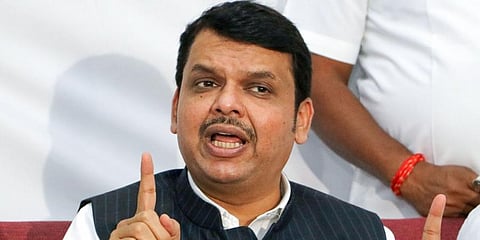

Opposition members have hit out at the proposed Maharashtra Special Public Security Act, which is aimed at curbing 'urban Naxalism'. The bill was reintroduced in the state assembly by Chief Minister Devendra Fadnavis in December 2024.
The proposed law will give the authorities broad powers to declare organizations unlawful and arrest people for alleged anti-national activities.
After objections to the controversial bill, it was sent to a joint parliamentary committee headed by BJP MLA and revenue minister Chandrashekhar Bawankule. The committee recently issued advertisements in prominent local newspapers seeking suggestions and objections from public representatives, social activists, social organisations and NGOs to strengthen the proposed law. It has asked them to submit their written views by 5 pm on April 1, 2025 to the secretary of the Maharashtra assembly.
The Opposition has alleged that the law will turn Maharashtra into a police state. NCP (SP) MP Supriya Sule said the proposed law "gives the government a license to establish a Police Raj, which could be misused."
"Historically, the British attempted to introduce a similar law (The Rowlatt Act) to suppress opposition during colonial rule," she alleged.
Congress MLA and legislative party leader Vijay Wadettiwar said the bill will approve excessive administrative powers to probe agencies. He alleged that the law would be misused to target opposition leaders, social activists and social organisations.
“This proposed law will allow the state machinery to infringe on people's fundamental rights besides muzzle the dissenting voices and organizations that are critical of the government. They will be easily labeled as "illegal" and function will be also restricted. This law does not respect the importance of ideological diversity in a democracy. It will also undermine the independence of the judiciary,” he said.
NCP SP MLA and former minister Jitendra Awhad said several provisions in the bill could curtail fundamental rights such as freedom of expression, the right to association, and the right to a fair trial.
As per this proposed law, an "illegal act" referred to any action by an individual or organization that threatens public order, peace, or stability, interferes with public order or has a tendency to do so, interferes with the administration of justice, legally established institutions, or government employees, or has a tendency to do so and seeks to instill fear through the use of criminal force or threats against any public servant, including the state or central government forces, while they are exercising their legal authority.
As per the proposed law, any member of an organization declared to be unlawful faces up to three years imprisonment and fines up to Rs 3 lakh while non-members contributing to or aiding unlawful organizations face up to two years imprisonment and fines up to Rs 2 lakh.
The proposed law also states that District Magistrates or Commissioners of Police can take possession of places used for unlawful activities once an organization is declared unlawful. The government has the power to forfeit money and assets intended for use by unlawful organizations.